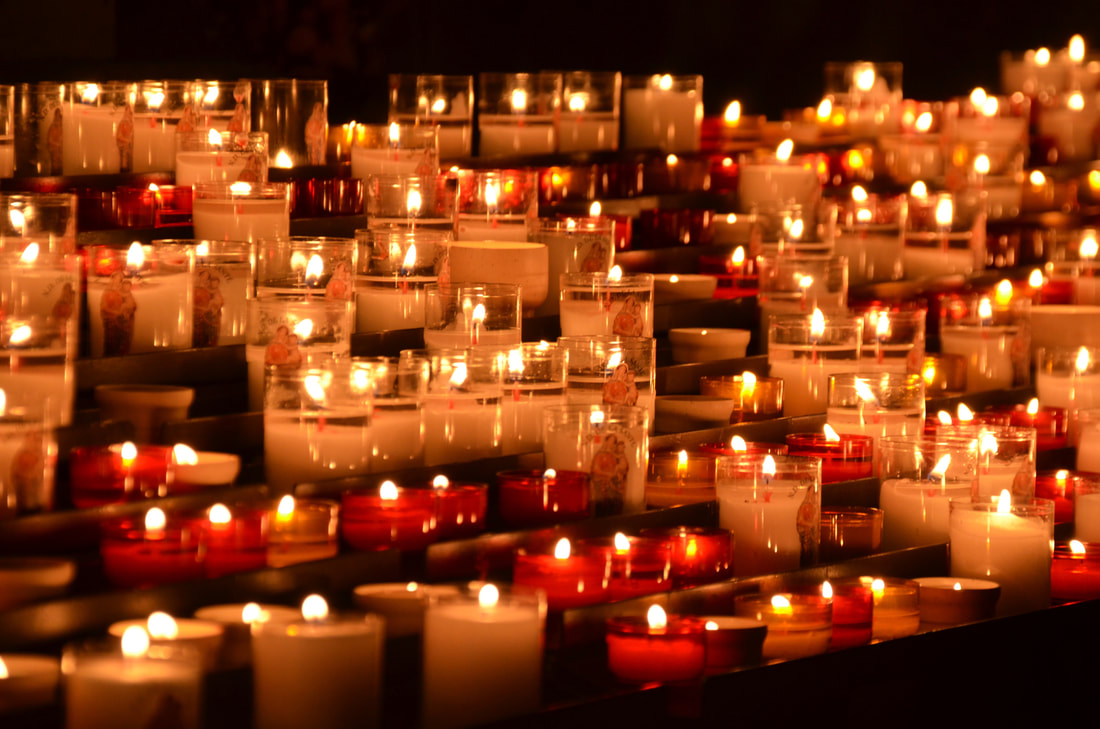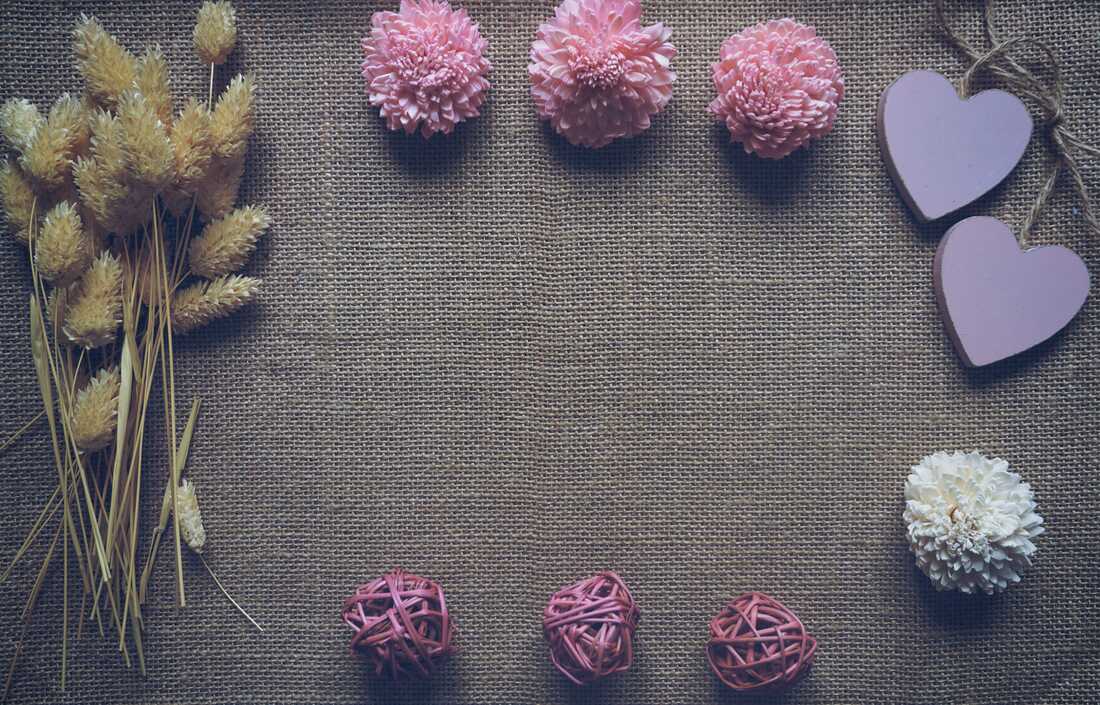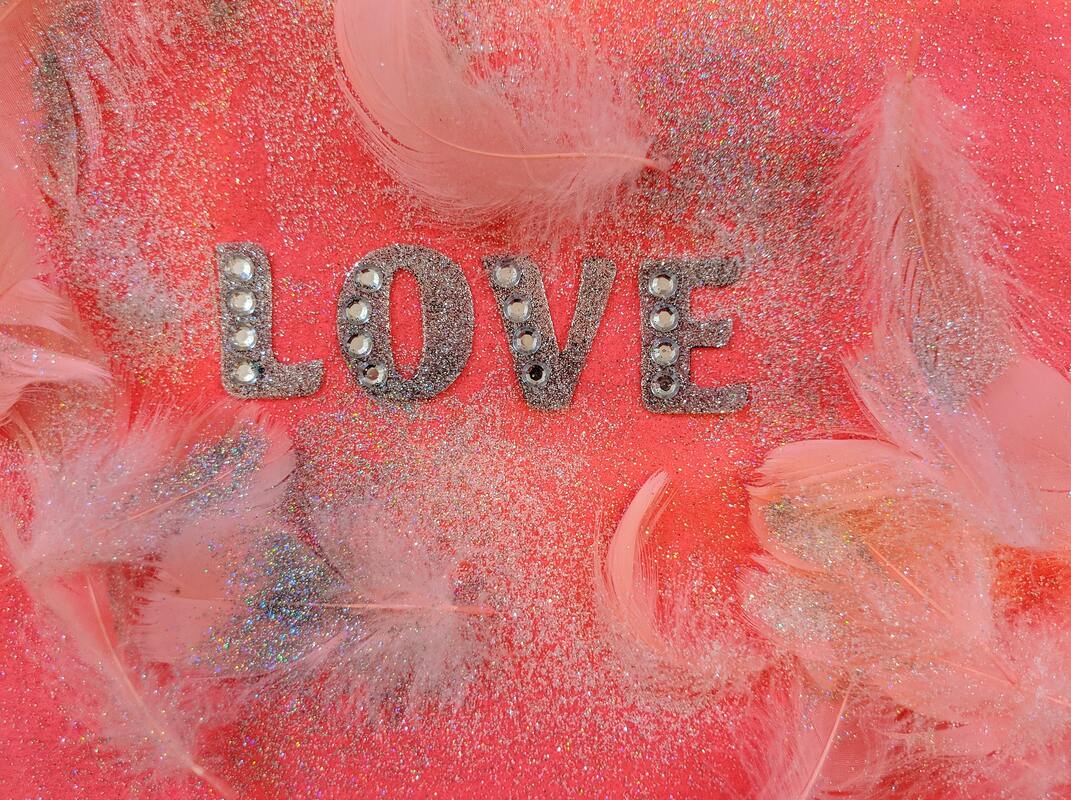|
By: Nick Carrington EPLA Editor Two years ago, a cousin of ours had a miscarriage. She also almost lost her life. Her and her husband dealt with the grief, the sadness, the physical recovery, and the bills. As with all miscarriages, it was a tragedy. That cousin is due to have her second child (first born) in two months and has had a healthy pregnancy. She recently shared with us how joyous it was to save for medical bills for the birth of her coming little one. At first, that notion seemed crazy. Medical bills? They typically agitate us, sometimes to the point of angst as we argue with insurance companies and forego other desires to scrape enough together to keep debt collectors at bay. How can saving for them bring such exuberance? We came to understand that the pain of paying necessary medical bills for her miscarried child made the act of saving for this baby a joyous one. Paying the necessary money for her child would always be worth it. But, after taking the financial hit without the reward of a little one, our cousin has a new perspective on what real “cost” is. At the EPLA, we know just how hard it can be to receive medical bills after a miscarriage. Those numbers on a piece of paper can feel like a dagger to an already lacerated heart. And depending on when you receive your bills, it can feel like they’ve opened a wound that just started to scar. One day, the EPLA hopes to help people who have miscarried by paying part of their medical bills. It won’t heal that wound completely, but maybe it can be a balm that provides a little relief. It will be one more way we can come alongside those suffering. Right now, we aren’t in a position to achieve this goal, but we are actively setting aside money for this purpose and with every donation, we get a little closer, and that gives us hope. If you have miscarried, know that we have thought about the totality of your pain, including the agony of paying medical bills. At some point in the future, we aim to ease that pain just a little, and maybe for a moment, engender some peace. Nick Carrington is an Editor for the EPLA and Assistant Professor of Professional Writing at Cedarville University.
0 Comments
By: EPLA Editors
Sunday was Father’s Day and as Facebook filled up with beautiful tributes to all of the amazing fathers out there, we couldn’t help but notice some very special posts honoring the brave yet heartbroken loss dads. We see you out there. Your arms long to hold your little one, but instead you grip the mother of your child as she weeps. You weep too, and that is okay. We see you, we thank you, and we want to honor you. Here are some of our favorite articles honoring loss dads this Father’s Day:
And our favorite Facebook posts were on these pages: Know that today and every day, you are a father. By: Emily Carrington EPLA Founder Last week Dear Abby responded to Crystal in Nevada about her aunt who was still grieving a stillborn baby who died 20 years ago. Crystal was concerned about her aunt because she has “lived a morbid lifestyle.” Examples of morbidity included wanting to have a 1st Birthday party and recently asking for the baby to be included in the list of grandchildren at her grandfather’s funeral. Abby responded by validating Crystal’s concerns and invalidating the aunt’s grief. She started by saying that this woman needed grief counseling and then that the idea of the birthday party is “truly sad.” She did suggest that it wasn’t that out of line to want to include the baby in the list of grandchildren, so there is that. As many in the baby loss community have pointed out, Abby’s response was not only out of touch, but it is actually harmful to loss parents. While grief counseling is a great tool for learning to live with grief, what type of result does Abby think grief counseling will produce? This response at Unexpected Family Outing says it well: “You assumed that her aunt had not sought any kind of counseling. Perhaps, you think counseling cures a person’s heartache for their child?” The same piece continues to point out the flaws with Abby’s advice: “You could have shared that there is no timeline when it comes to grief. You could have used your influential platform to help those normalizing the grief experience. Instead, you decided to continue the very harmful narrative that grief is about moving on.” And many others took to Facebook to express their disgust with Dear Abby. At the time of publishing the Dear Abby post had over 430 comments that largely expressed displeasure and pain with Abby’s answer, a much greater response than any recent posts on the page. From our perspective at EPLA, two things are very clear from this whole episode:
The Dear Abby issue shows us just how far we’ve come and how far we still need to go. We rejoice in our progress and look forward to the challenges ahead -- because no family should suffer miscarriage alone. Emily Carrington is the founder of the EPLA and mother to four children. By: MaKenzie Schienebeck I wanted it to be over. I wanted our once joyful baby to be out of me. The pain of carrying a baby inside of me that is gone was only bringing awful pain. I was given medication to make the process faster. I inserted the four prescribed pills and waited for my body to speed up the process. These pills help rid the baby from your womb. The next morning, I awoke in pain and blood. I felt sick. I hopped in another hot shower to ease the cramps. This is normal when you’re giving birth. I was dilated. Once I finished showering, I laid on the couch in agony. The pain was immense. I ran back to the shower. My two boys and husband were now up for the morning. My oldest was getting ready for school. Let me note, this was also my 24th birthday. My husband got our oldest on the bus and made me my favorite stuffed French toast for my birthday breakfast. I showered again, and happened to hold my hand out at just the right moment to catch our baby. It was a beautiful little baby with all its anatomy. We placed our baby in a Tupperware container with a towel temporarily until we could bury him/her. I then laid on the bathroom floor, feet away from my son and husband, who were in the kitchen. I asked my husband for a glass of water. The blood loss was making me extremely thirsty. I recall waking up to my cup of water spilled on the floor around me, blood all over, my husband at my feet as his voice cracking with fear. He was on the phone with 911. After another unconscious moment, I woke up to a stretcher in my house, an ambulance crew, and police. I was taken to our local hospital by ambulance. Sitting on a white bed and looking at bright lights, I felt blood pour like a waterfall out of me. I asked the nurses and doctor if I was going to die. They looked fearful. My husband held my hand. I was passing out over and over. I felt a strange peace amongst the sickness and blood loss. My husband temporarily had to leave my side to hand my grandmother our youngest. She took him to her house while my husband stayed by me. As he was away, I grabbed my phone with the last ounce of strength left in me. I wrote my sons and husband a goodbye letter. I felt as if this was it me. My life is over at 24, on my birthday. I recall the immense pain, thinking of missing out on birthdays, graduations, and life with my family. How easily we take for granted the sunrise the next day and the family beside us. An ambulance crew from Woodruff, Wisconsin, came to take me from Park Falls. My husband followed along in the car. It was a 45-minute drive. I had an emergency D&C and blood transfusions. I asked and EMT if I was going to die. He told me “nobody has ever died in my ambulance, and you are not going to be my first.” He was an angel. He made me feel safe. After surgery, I received more blood in my recovery room. I was given instructions to sit up hours later. My blood pressure and heart rate skyrocketed, and I passed out. My body was not taking the blood loss and new blood well. I was fearful to ever sit up again. We stayed in the hospital overnight. The next day, after more blood was given to me, we were sent home. I took it easy to recover. My husband took down the crib and so forth. I sold every baby item and cried each time. I kept TWO items: a black and white muslin blanket with arrows, which I would cuddle it every night, and my baby’s soft, yellow sleeper with ducks on it. I had a cabinet with wedding memorabilia. Baby’s sleeper, pregnancy test and ultrasounds are now in there with our wedding belongings. I had panic attacks for months. I decided I was not going to be given this card in life without fighting back. I set up a Facebook page to talk to others going through this. I speak out. I want to normalize this taboo subject. I never thought this would happen to me. When I found out I was pregnant, I felt invincible. I felt nothing bad could happen. My biggest fear was something happening to me at birth. My whole outlook on life has changed. It is a gift. We get so used to waking up every morning that we forget about those who don't. I was almost one of them. I was also one of the one in four woman in every pregnancy that lost her baby. One in four. Let that sink in. I could not fathom the women in my life who opened up about their losses. There are so many of us mothers to angels, but you would never know it. It could be you, your friend, sister, mother, neighbor. It is not uncommon, and it is brutally painful. We buried our baby in a small wooden box, kissing it as we lay it down into the cold, brown dirt. I purchased blue and pink flowers to plant by our baby. We did not know the gender. Our baby was not going to he buried nameless, so my husband and I combined our first initials and named our beloved angel KC. KC turned my pain into power. My sadness into greatness. I will not stop speaking out until my last breath. I would also like to tell everyone reading this that you are not alone. Do not be afraid to speak up. If you want to remain quiet, remain quiet. If you want to talk, talk. If you want to cry or grieve, get it out. And last but not least.. do not forget about the fathers. They feel the pain we feel. They helped bring that little life into this world with you. Although they do not carry the baby, they share the love we do. Talk to them, ask if they are okay, support and love them. Sending sympathies to mom? Don't forget dad. My hope is that I save someone from this pain. I hope you know you are strong, loved and needed. The pain will remain but your strength is stronger. Fight it out moms and dads: you are warriors. God gives his toughest battles to his strongest warriors. MaKenzie Schienebeck is a mother to two beautiful boys and an angel baby. She is a wife, blogger, and entrepreneur. MaKenzie is Mrs. Price County Wisconsin and running for Mrs. Wisconsin United States.
By: MaKenzie Schienebeck Growing up in a small town full of love, family and friends, life was seemingly beautiful even after enduring many hard times. The people surrounding my life were always there to lift me back up, dust me off, and straighten my crown. Envisioning my future, I knew I wanted a big family of my own with my husband. We have two beautiful young boys together, ages seven and three. The two of us work hard to keep a roof over our head, food on our plates, and love, laughter and adventure flowing through our house. We knew we wanted another child to add to our crazy, mud-digging, Hot Wheels-filled, goofy household. One day, while my husband was away at work, I picked up a pregnancy test from our local dollar store. Once home, I went to the restroom, unwrapped that good old box and did the test. Seconds later, I saw two beautiful pink lines. I tried to keep calm and collected as excitement flooded throughout my body. I touched my belly, realizing I was carrying another blessing. Once my husband arrived home from work, I asked him to come check out the tomatoes in the garden with me. It was my way of getting him alone to tell him about the new bundle of joy. After I told him, we hugged, cried, and went on to tell family and friends. Doctor’s appointments, ultrasounds, days, and nights passed by. We saw our growing peanut’s little hands, feet, belly, arms, head, heartbeat, and wiggling little body all on a black and white screen before us. The two of us had excitedly purchased all the necessities for baby number three: Pack-n-Play, rock n play, bottles, crib, bedding, toys, blankets, Bumbo, activity mat, diapers, you name it. Baby’s room was set up only two months into our pregnancy. “Excited” is nowhere near the joy we were experiencing. Our boys would kiss my belly, talk to baby, dream of adventures they’d have as baby grew up with them. Fast forward to my morning sickness. I had such bad sickness with my previous pregnancies, so I was thankful this last pregnancy that I wasn't enduring the morning sickness after two months. It completely stopped and I felt way better. I continued to rub my belly, make plans, and buy baby products. Our two boys came to appointments and ultrasounds with us. The last ultrasound is where my story turned from sunshine to an unspeakable darkness. The doctor squirted jelly on my stomach and began rolling the heartbeat monitor around. Thinking she had heard movements or a beat but could not say for certain, she reminded us this is common in early pregnancy. We were given the choice to head home or get an ultrasound. The clinic was 45 minutes away and we had to wait five hours for our ultrasound. My husband and I decided to take our youngest to the park to play, as our oldest was in school and would be going to his grandmother’s later on if we were not back in time. AT the park, there were giggles, rain, swings and talks. We played until it was time to head back to the ultrasound. After a while in the waiting room, we were called in. Giddy, we thought nothing of this ordeal. Baby was too small for the heartbeat monitor, right? Time to change into my gown as previous times, lay on the bed in a dim, calm, quiet ultrasound room which always stirred up amazing memories of my babies. More jelly on my stomach and up comes the image on the screen. My husband was by my side, holding our youngest son. The tech scrolled on baby three, changing screen colors. Flat lines on the heartbeat grid, moving to different angles, round belly, head. Same baby but this time, different story. My husband said "there is no heartbeat.” The tech told us she could not confirm his suspicion; only our doctor could. My soul, my husband’s soul felt crushed within minutes. Tears of the worst pain flowed down my face. We were walked in a quiet hallway away from public, upstairs to my doctor’s office. The news we already knew was confirmed. We had lost our baby two weeks prior. I had an awful ride home. How do I tell my sons? How do I tell my family and friends? Did I do this? Did something I ate or do, do this? This cannot be. The ultrasound has to be wrong. My baby is not dead. Denial. Blame. I felt it all. Once home, I sat on the shower floor as hot water fell upon me. I took shower after shower to soothe my pain, anxiety, and depression. I remembered how I would rub my belly and realized I was rubbing a belly with a lifeless baby inside, unbeknownst to me. MaKenzie Schienebeck is a mother to two beautiful boys and an angel baby. She is a wife, blogger, and entrepreneur. MaKenzie is Mrs. Price County Wisconsin and running for Mrs. Wisconsin United States
By: Nick Carrington EPLA Editor At Hope Blooms, we’ve talked extensively about remembering the children of your loved ones. In the immediate aftermath, that’s easier to do. But as time goes by and the initial pain subsides for loss parents, friends and family may forget to acknowledge the loss. It happens with every death; when my grandfather died, my family spent a lot of time recounting his jokes, oddities, and warmth. It was cathartic and a way to honor him. We still tell those stories from time-to-time but not with the frequency that we did immediately after his passing. But child loss is different in many ways than other deaths. The intensity of the grief may decrease, but the grief remains in some form for a lifetime. You may not see the grief as vividly, but it persists, like a scar that doesn’t quite fade away. For loved ones, we have opportunities to come alongside loss parents for the long haul. That does not mean bringing up the loss frequently, but we can find little moments to remind the parents that we remember and love their children. So, from time-to-time, send loss parents a gift that shows you remember their children. Write them a note. Bake them a special treat. Do whatever you can to honor their little ones. Because the grief of losing a child doesn’t end. It intensifies and wanes, but it doesn’t end. Parents who experience miscarriage need our support, and we as loved ones should let them know: your children may not be here, but they are still loved. Nick Carrington is an Editor for the EPLA and Assistant Professor of Professional Writing at Cedarville University.
|
Archives
December 2023
Categories
All
|






 RSS Feed
RSS Feed